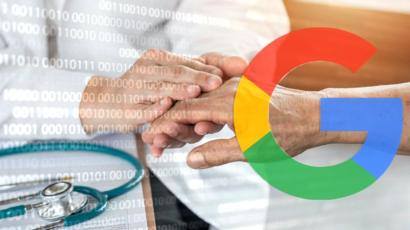Artificial intelligence has a wide range of use in every industry that we can think off. It is meant to make people’s work more efficient and more accurate. But the biggest advantage of using this algorithms is that they can conduct hard and time consuming tasks with the imperceptible margin of error.

But how AI is used in medicine?
Thanks to AI algorithms and machine learning models there are a lot of possibilities in which professionals are able to use them. Currently the most common roles of AI in this field are supporting clinical decisions and imaging analysis. The idea of clinical decision programs is to help specialist make decisions about the treatment, medications and other things that patients need. Whereas the imaging analysis is intended to analyse X-rays scans and many others to provide the information faster and more accurate. It also speeds up some process considering developing new medicine.
Recent Applications of AI in Medicine
1.Diagnose Diseases
The diagnosis part of treatment is the most crucial one. It takes years of medical training to do them correctly. What’s more it is time-consuming process, which might directly influence patients that are waiting for the treatment. That why machine learning is particularly helpful in this area. However not all diseases can be diagnosed by machines, because lack of digitalized data. Luckily there are few that AI and doctors decided to start with, here are some examples:

2.Personalized treatment
There are many different patients and they respond differently to drugs and the ways of treatment. Actually it’s not an easy task to decide what medicine will work the best in your scenario. So that specialist came up with an idea of personalized treatment method. They use the machine learning algorithms to automate the process of discovering characteristic that a specific patient will have a good response to a particular treatment. The system learns this by cross-referencing similar cases with the outcome of the treatment. It all makes much more easier work for doctors.
3. Remote medicine
Ai in this industry isn’t only meant for doctors and specialists. It is also deployed for patients directly. Since the outbreak of the Covid-19 pandemic there has been a significant growth of Ai chatbots in hospitals and small clinics to help patients recognize their health problems. They have also significantly reduced challenges people had to overcome while searching for help.
There are also applications in which you can define what are your symptoms and the algorithm will automatically say what disease are you struggling with. It will also advise you to go to see the doctor if necessary. It was especially useful during pandemic to reduce number of patients coming for appointments.
Video:
To sum up, Ai is already helping us in many aspects of medicine. There are lot more things that it optimizes and helps with. But it is just the beginning , the more we digitize medical data the more we can use AI to search new patterns. It surely is the future of our Medicine.
If you want to learn something more I advise you watching the video below. Let me know what do you think about such algorithms.
Sources:
IBM: https://www.ibm.com/topics/artificial-intelligence-medicine
Data revenue: https://www.datarevenue.com/en-blog/artificial-intelligence-in-medicine



